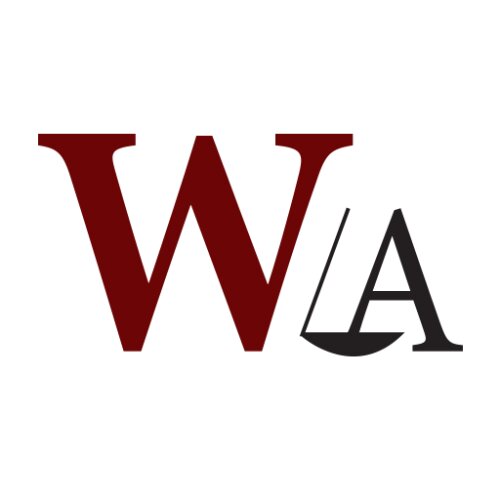Best Government Relations & Lobbying Lawyers in Rustenburg
Share your needs with us, get contacted by law firms.
Free. Takes 2 min.
List of the best lawyers in Rustenburg, South Africa
South Africa Government Relations & Lobbying Legal Articles
Browse our 1 legal article about Government Relations & Lobbying in South Africa written by expert lawyers.
- B-BBEE Compliance Guide for Small Businesses in South Africa
- B-BBEE compliance is measured on a scale of Level 1 to Level 8, where Level 1 provides the highest competitive advantage for securing government tenders and private sector contracts. Small businesses with an annual turnover under R10 million are classified as Exempted Micro Enterprises (EMEs) and automatically qualify for Level... Read more →
About Government Relations & Lobbying Law in Rustenburg, South Africa
The field of Government Relations & Lobbying in Rustenburg, a city known for its significant mining industry, revolves around the interaction between private entities and government bodies. This interaction is heavily regulated to promote transparency and prevent corruption. In South Africa, including Rustenburg, government relations and lobbying involve working within the legal frameworks that govern how businesses and individuals can influence government decision-making processes through legal means, ensuring the interests of various stakeholders are effectively communicated and addressed.
Why You May Need a Lawyer
Engaging in government relations and lobbying in Rustenburg involves navigating complex legal and regulatory frameworks. You might need a lawyer if:
- Your business seeks governmental approval for projects or needs to influence policy decisions that could impact your operations.
- You are unsure about the legal requirements and ethical boundaries for lobbying activities.
- You face allegations of non-compliance with lobbying regulations and require representation.
- You are developing strategies to effectively engage with policymakers while ensuring compliance with all applicable laws.
- You need assistance understanding how local, provincial, and national laws impact your ability to lobby or engage in government relations.
Local Laws Overview
The key laws governing government relations and lobbying in Rustenburg are influenced by national legislation, since Rustenburg falls under the South African jurisdiction. Key aspects include:
- The Regulation of Lobbying Act which outlines the legal parameters for lobbying activities.
- The Prevention and Combating of Corrupt Activities Act which aims to prevent bribery and corruption in dealings with public officials.
- The Promotion of Access to Information Act which ensures public bodies respond to requests for information, relevant for transparent lobbying practices.
- Local municipal regulations may also affect your lobbying efforts, particularly in areas related to zoning, development projects, and local council policies.
Frequently Asked Questions
What is lobbying in a legal context?
Lobbying refers to the process of attempting to influence decisions made by government officials, typically legislators or regulatory agencies, often by individuals who represent interest groups.
Are there any legal requirements to register as a lobbyist in Rustenburg?
Yes, individuals or firms engaging in lobbying activities may need to register in accordance with South African national laws and adhere to specific disclosure requirements as outlined by the Regulation of Lobbying Act.
How does one ensure compliance with the lobbying laws?
Ensuring compliance involves understanding and adhering to all applicable laws regarding lobbying activities, such as registration requirements, reporting, and adhering to ethical standards. A lawyer can provide guidance on the specifics.
What legal boundaries must not be crossed when engaging in lobbying activities?
The major legal boundaries include avoiding any form of corrupt practices, bribery, unethical conduct, or misrepresentation of facts. Transparency and honesty are critical.
How does lobbying differ from public relations or advocacy?
Lobbying specifically involves influencing governmental decision-making, whereas public relations seeks to influence public perception and advocacy focuses on broader issue-based campaigning.
Can businesses lobby without employing a professional lobbyist?
Yes, businesses can engage directly with government officials; however, understanding the legal landscape is crucial to avoid unintentional non-compliance, for which legal guidance may be beneficial.
What are the consequences of failing to comply with lobbying regulations?
Non-compliance can lead to legal penalties, including fines and reputational damage. In severe cases, it could result in criminal charges.
Are there specific agencies to approach in Rustenburg for lobbying efforts?
Lobbying efforts should be directed towards relevant local government agencies, such as municipal offices, especially if the lobbying relates to local issues in Rustenburg.
How can lobbyists influence policy without direct interaction with government officials?
Indirect methods may include research, analysis, written communications, and public campaigns to align public sentiment with their objectives, thus indirectly influencing policy.
What role does public opinion play in government relations and lobbying?
Public opinion can amplify or dampen lobbying efforts, making it a powerful tool in influencing policy when leveraged correctly through media and publicity campaigns.
Additional Resources
For additional guidance, consider reaching out to these resources:
- South African Institute of International Affairs (SAIIA) for insights on governmental processes.
- Local Rustenburg municipal offices for specific community regulations and lobbying guidelines.
- Legal publications and journals that regularly cover updates in South African lobbying laws.
- Professional associations such as the Public Relations Institute of Southern Africa (PRISA) that may offer resources or networking opportunities.
Next Steps
If you are considering engaging in lobbying activities and require legal assistance, here are the steps you should take:
- Conduct initial research to understand your lobbying goals and relevant legal aspects.
- Consult with a lawyer who specializes in government relations and lobbying in South Africa to ensure thorough understanding and compliance.
- Register as a lobbyist if your activities require it, implementing any necessary internal compliance mechanisms.
- Develop a comprehensive strategy that aligns with both your objectives and the legal boundaries.
- Maintain transparency and ethical standards throughout your lobbying efforts to safeguard your organization's reputation and legal standing.
Lawzana helps you find the best lawyers and law firms in Rustenburg through a curated and pre-screened list of qualified legal professionals. Our platform offers rankings and detailed profiles of attorneys and law firms, allowing you to compare based on practice areas, including Government Relations & Lobbying, experience, and client feedback.
Each profile includes a description of the firm's areas of practice, client reviews, team members and partners, year of establishment, spoken languages, office locations, contact information, social media presence, and any published articles or resources. Most firms on our platform speak English and are experienced in both local and international legal matters.
Get a quote from top-rated law firms in Rustenburg, South Africa — quickly, securely, and without unnecessary hassle.
Disclaimer:
The information provided on this page is for general informational purposes only and does not constitute legal advice. While we strive to ensure the accuracy and relevance of the content, legal information may change over time, and interpretations of the law can vary. You should always consult with a qualified legal professional for advice specific to your situation.
We disclaim all liability for actions taken or not taken based on the content of this page. If you believe any information is incorrect or outdated, please contact us, and we will review and update it where appropriate.











